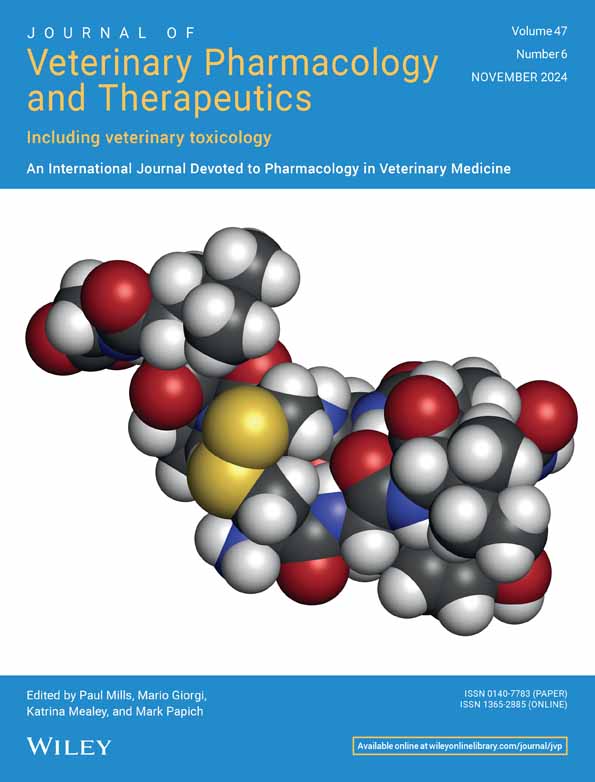Oclacitinib (APOQUEL®) is a selective Janus kinase 1 inhibitor with efficacy in a canine model of flea allergic dermatitis
Abstract
Oclacitinib is a novel Janus kinase (JAK) inhibitor that potently inhibits JAK1-dependent cytokines involved in allergy, inflammation, and pruritus (IL-2, IL-4, IL-6, IL-13, and IL-31). Oclacitinib (Apoquel®, Zoetis Inc, Parsippany, NJ) is approved for the treatment/control of pruritus associated with allergic dermatitis and treatment/control of clinical manifestations of atopic dermatitis in dogs at least 12 months of age. To evaluate the effectiveness of oclacitinib in dogs with flea allergy dermatitis, the JAK1 selective inhibitor was tested in a placebo-controlled, masked, single-dose (0.4 mg/kg) or repeat-dose (0.4 mg/kg, twice daily for 2 weeks) study. Pruritic behaviors were quantitated by video recording, and erythema and skin lesions were assessed using a 10-cm visual analog scale (VAS). Results showed that oclacitinib reduced pruritus by 61% as early as 1.5 h after a single oral dose compared to placebo, with an average reduction (compared to placebo) of 85% 1–5 h after dosing (0.4 mg/kg; p < .0001). Oclacitinib also significantly reduced erythema (p < .0001) and skin lesion (p < .0005) VAS scores on Day 14 compared to placebo in a repeat dose study. No adverse events were noted during the conduct of these studies. IL-31 concentrations were elevated in the majority of dogs after flea infestation, suggesting JAK1-dependent cytokines may drive clinical signs of flea allergy dermatitis. These findings show that oclacitinib, an inhibitor of JAK1-dependent cytokines involved in allergy and inflammation can rapidly reduce clinical signs associated with flea allergic dermatitis in dogs.
CONFLICT OF INTEREST STATEMENT
Gonzales, Aleo, Mahabir, Messamore, and Stegemann are Zoetis Inc. shareholders.
Open Research
DATA AVAILABILITY STATEMENT
The data that support the findings of this study are available from the corresponding author upon reasonable request.




